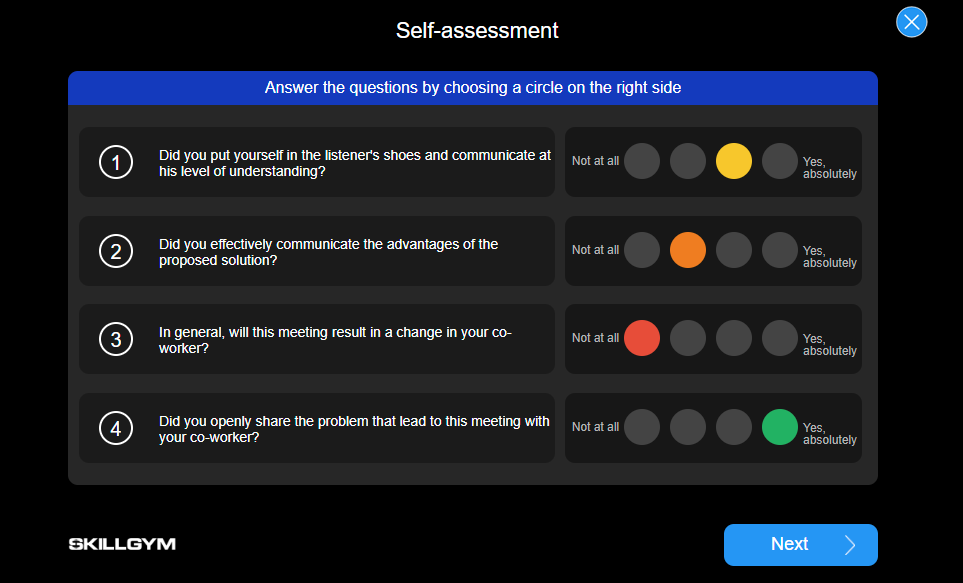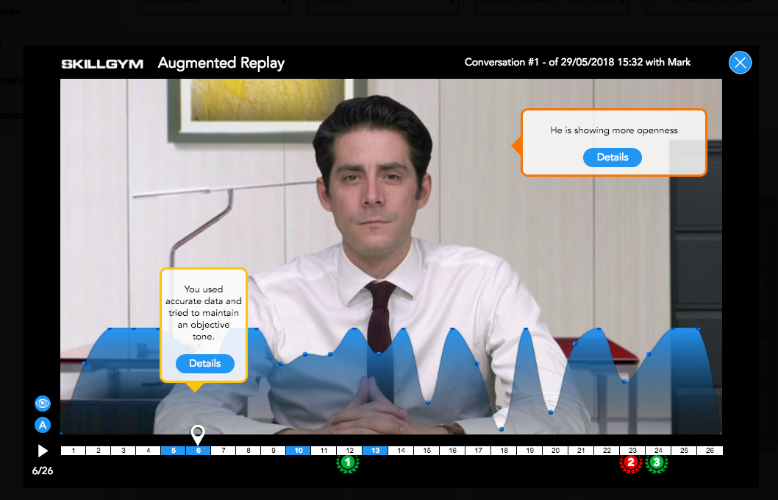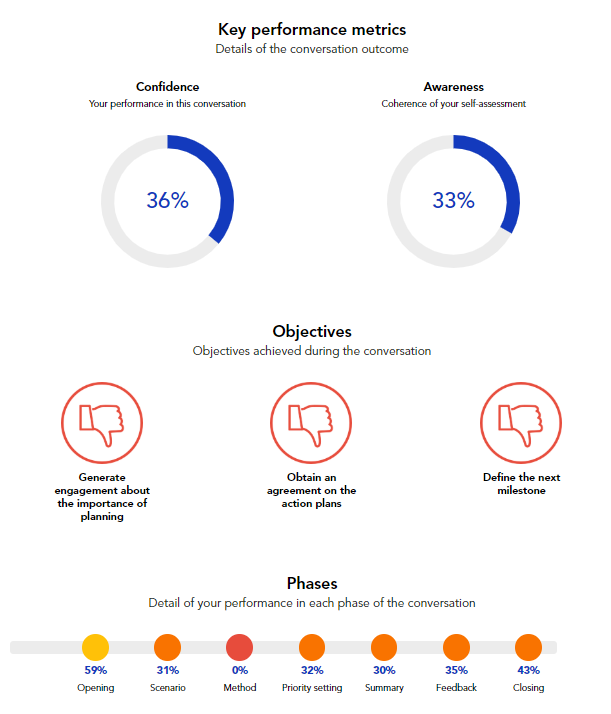Why adult education is different
Adult education is very different from education that we all received in school in terms of purpose, motivation, and roles.
The usual comparison is made between Pedagogy and Andragogy, but in this chart we want to summarize the main differences that every adult trainer should be clear about during his activity.
| In school | As an adult / on the job | |
|---|---|---|
| The learner is … | dependent on the teacher and the program | self-directed and responsible for his own learning |
| Learner’s experience is… | absent or very low, needs to be expanded | rich, and has to be considered and addressed as a resource |
| The motivation to learn is… | mostly external, often triggered by grades and sometimes competition | mostly internal: self-realization, recognition, solving a problem |
| The readiness to learn… | is “push” in that students are told what to learn | is “pull” and can be triggered by a change in their lives, the desire to manage a task better, etc. |
| Learning needs are… | mostly subject-centered and not always clear to the learner | connected to their professional or personal issues and goals |
| The expected outcome is… | good grades, achieve the next level of mastery | to improve oneself, filling knowledge gaps, and/or better quality of life |
Adults learners need to know why they have to learn something, and what advantages will they have once they have learned it.
How to efficiently teach to adult learners?
This is the main question that drives our learning design. We rely on Andragogy as theorized by Malcolm Knowles [4][5] to create engaging and effective training experiences.
In brief, this theory states that adult learning should recognize and appreciate the existing experience of the learner, has to be practical and problem-centered, and related to topics relevant for their work or personal life. Also, learners should be involved in planning and evaluation.
That’s why in our simulators, the learner is immersed in a realistic situation close to this job context in which he has to use his existing skills at his best to achieve the assigned objectives.
The self-evaluation and the learning plans ensure that the learner is involved in every phase of the learning process. Moreover, all the scripts are created in collaboration with an SME (Subject Matter Expert) who works in similar situations and provides us with real-life situations and wording to ensure an experience as close as possible to a real one.
Adult education should recognize and appreciate the existing experience of the learners, be practical and problem-centered, and related to topics relevant for their work or personal life.
How to implement an experiential approach in learning?
Another important part of our methodology is based on the Experiential learning theory by D.A. Kolb, stating that learning is the process where knowledge is created through the transformation of experience. The theory proposes a cyclical model of learning, made of four steps: experience, observation, reflection, experimentation.
This theory drives the UX in our simulators since the user has to complete the conversation, do a self-evaluation to analyze his performance, deep dive in a conversation already completed to reflect on his actions and do another simulation to apply what he has learned.

An example of self-evaluation proposed after a simulation

The “Augmented Replay” where the user can analyze his performance and mistakes
Why it is important to leverage previous experience of adult learners?
We talked about how important the previous experience of the learner is in SkillGym methodology. Another theory backing this idea is the Functional context theory, as theorized by Sticht. Students learn best when instruction is based on a prior knowledge base, making use of long-term memory.
Instructional strategies must be developed that require students to make use of their language and problem solving skills.
This is what we have in mind when we build the objectives for each story: the problems to be solved are created to leverage and improve the existing skills, through a critical conversation that requires the use of communication skills at their best.
Instructional strategies must be developed that require students to make use of their language and problem solving skills.
Why simulation is a key aspect of SkillGym methodology?
To answer this question we can rely on many theories. In addition to the principles of Andragogy that point towards an experiential and problem-based training for adult learners (which we addressed above), we should mention the Simulation theory by Goldman and Shanton, who affirm that simulation has a role in mind reading, memory, and prospection.
In particular, mind reading involves the imitation, copying or re-experience of the target’s mental processes. Another theory supporting the value of simulation over other, more passive methodologies, is the Information Processing Theory by Craik, Lockhart and Bransford.
According to this theory, the information is processed in various ways (perception, attention, labelling, and meaning), thereby impacting the ability to access the information later on. This means that the information will be more easily retrieved if the way it is accessed is similar to the way in which it was stored.
So learning something in a simulation will let the learner recall it more easily in a later situation similar to the simulated one.
Following Csíkszentmihályi’s theory of Flow state during learning, there are eight mental states that can happen during learning.
Flow is what learners experience when engaged in an activity that is challenging their skills level, resulting in immersion and concentrated focus that can result in deep learning and high levels of satisfaction.
Training on a SkillGym simulator keeps the learner in the “flow” state as much as possible thanks to its realistic and interactive approach.

A simulated conversation with a colleague
Flow is what learners experience when engaged in an activity that is challenging their skills level, resulting in immersion and concentrated focus that can result in deep learning and high levels of satisfaction.
Why the feedback given from the virtual character is important in improving user’s skills?
The feedback gives the unique possibility to see what the counterpart could think about our performance once the conversation is over. This is an information that is impossible to have in real life, and represents one of the most important triggers for the user to generate powerful questions for himself or his trainer (i.e. “Why didn’t the character accept my point?”, “What did I do wrong?”, etc.).
The Operant conditioning by Skinner states that behaviors that are reinforced will tend to continue, while behaviors that are punished will eventually end.
The feedback is a great opportunity to reinforce positive behaviors (by acknowledging the acceptance from the counterpart) and remove negative ones (by realizing what the REAL outcome of bad behaviors is on the other person).
After this qualitative feedback, the user is presented with quantitative feedback that shows numerical results about general performance, self-assessment coherence, and efficacy in each phase of the conversation.
The system also provides a representation of the performance in each phase and shows if the objectives have been achieved or not. This tool is useful to identify the areas of strength and weaknesses as well as to monitor the improvement and the actual removal of negative behaviors.

The same colleague commenting on the conversation later, during a phone call to a friend
What is the best way of measuring user’s soft skills application?
This is one of the most discussed topics in soft skills training. The terms “competence”, “skill”, “behaviors”, etc. are interpreted many different ways.
The Psychological Behaviorism as theorized by Staats explains that a person’s psychology can be explained through observable behavior.
That’s why we describe the skills as very clear observable behaviors, which degrade as the user’s performance deteriorates. Moreover, the skills used in a simulator can be grouped into competences to fit different training needs and contexts.
The importance of Gamification
Malone et al. theorized that the engagement gamers experience can be translated to an educational context to improve learning and influence student behavior.
Some elements to be included are: narrative, feedback, fun, scaffolded learning with challenges that increase, progress indicators like points and badges. All of these elements are present in the SkillGym user experience.

The quantitative feedback of a conversation that had a bad outcome
All the theories described in this article have been widely dealt with in their authors’ books.
In the attached bibliography, you can find all of the references if you want do enhance your knowledge about these topics.
Feel free to comment below or book a 1-hour discovery call of SkillGym.
Bibliography
-
S. Barry Issenberg, William C. McGaghie, Emil R. Petrusa, David Lee Gordon, and Ross J. Scalese. “Features and Uses of High-Fidelity Medical Simulations That Lead to Effective Learning: a BEME Systematic Review”. Medical Teacher, 27(1):10{28}, 2005.
-
Margaret Bearman, Debra Nestel, and Pamela Andreatta. “Oxford Textbook of Medical Education”. Oxford University Press, 2013.
-
De Ascaniis S., Cantoni L., and Sutinen E. and Talling R. “A Lifelike Experience to Train User Requirements Elicitation Skills. In Design, User Experience, and Usability: Understanding Users and Contexts.” DUXU 2017. Lecture Notes in Computer Science, vol. 10290. Springer, Cham, 2017.
-
M. S. Knowles, The Modern Practice of Adult Education: From Pedagogy to Andragogy. Englewood Cliffs: Prentice Hall/Cambridge.
-
M. S. Knowles et al. Andragogy in Action: Applying Modern Principles of Adult Education. San Francisco: Jossey-Bass.
-
M. S. Knowles, E.F. Holton, R.A. Swanson. The Adult Learner: The Definitive Classic in Adult Education and Human Resource Development. Burlington, MA: Elsevier.
-
Sticht T. G. Functional Context Education. Workshop Resource Notebook.
-
Sticht T.G. Functional Context Education: Making Learning Relevant.
-
K.Shanton, A. Goldman. Simulation Theory. fas-philosophy.rutgers.edu
-
C. D. Morris, J. D. Bransford, J.J. Franks, Levels of Processing Versus Transfer Appropriate Processing. Journal of Verbal Learning and Verbal Behavior.
-
F.I. Craik, R.S. Lockhart. Levels of Processing: A Framework for Memory Research. Journal of Verbal Learning and Vrbal Behavior.
-
D.A. Kolb. Experiential Learning: Experience as the Source of Learning and Development. Englewood Cliffs, N.J.: Prentice-Hall, Inc.
-
M. Csíkszentmihályi. Flow: The Psychology of Optimal Experience. New York, NY: Harper Perennial.
-
T. W. Malone. What Makes Things Fun to Learn? A Study of Intrinsically Motivating Computer Games. Pipeline, 6(2), 50.
-
Y. Yang. Three Questions to Ask Before You Embark on Gamification. eLearn.
-
M. Leaning. A Study of the Use of Games and Gamification to Enhance Student Engagement, Experience and Achievement on a Theory-Based Course of an Undergraduate Media Degree. Journal of Media Practice.
-
B. F. Skinner, About Behaviorism. New York: Vintage Books.
-
Knowles, M.S., Holton III, E.F. & Swanson, R.A. The Adult Learner, 5th edition, Woburn, MA: Butterworth-Heinemann.

